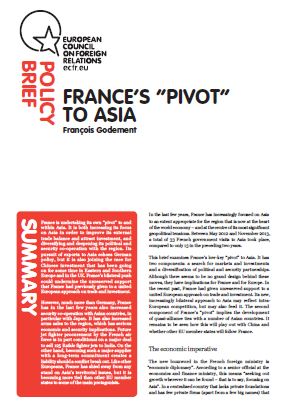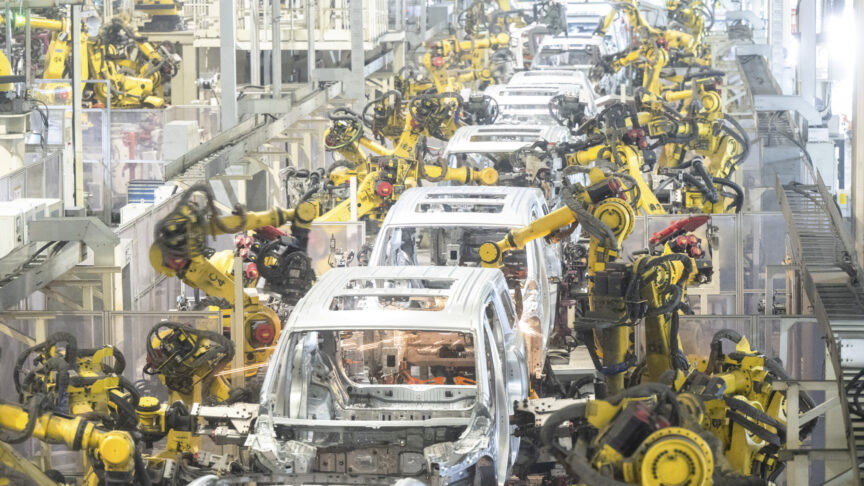France’s “pivot” to Asia
France looks beyond China towards new partners in Asia
France has launched an Asia-wide initiative in an attempt to halt declining trade figures and improve its overall leverage with the region. This ECFR paper points out that, while Paris continues to compete with other EU countries for Chinese inward investment, it is also attempting to correct an excessive focus on China by encouraging closer bilateral ties with India, Japan, Korea, Indonesia, Singapore, Vietnam and Australia. France is also exploring niche markets and investment in “second tier” countries like the Philippines and Laos.
The new diversification away from China of the Hollande presidency – dubbed “economic diplomacy” by French government officials – follows the normalisation of relations with Beijing during the Sarkozy years. France is hoping that stronger bilateral ties throughout the region, will yield new markets and political and security partnerships.
The report’s author, Director of ECFR’s Asia & China Programme François Godement, says France’s relatively weak presence in the region has led to a strategy based on three principles:
- Improved competitiveness of French exports and services;
- Partnerships based on the needs of target countries rather than the traditional promotion of French exports;
- A strategic presence based on self-financing defence co-operation.
Godement quotes one official as saying France “can no longer have only one overall Asia policy” The strategy appears to be working: the balance of trade between France and Asia has improved following an increased number of government visits to Asian markets since Francois Hollande came to power.
The “rebalancing” of its Asia strategy has also reinvigorated the French arms trade in the region. In 2012 half of all French arms sales were to Asia. Godement points out that while the most impressive defence co-operation has been with Japan, it is rising with partners such as India, Malaysia, and Singapore. France has a capacity for military projection that is now unique in Europe – although this capacity is now being threatened by the looming budgetary crisis.
However, this paper points out that France has been careful to continue the “global partnership” policy with China established by Jacques Chirac in 1997. France is also the biggest eurozone centre for the Chinese yuan. French and Chinese firms cooperate on the UK’s energy infrastructure, while the French government maintains a more protective stand on investment and public procurement issues in Brussels.
In conclusion Francois Godement warns that, because France’s Asia policy remains focussed on national interests, in the long term it will need to work within the EU to further its interests and meet its commitments. Godement adds “[f]rance’s Asia policy remains trapped between Europe’s half-baked intergovernmentalism and a federal system that many politicians know will diminish France’s status.”
A version of this article will appear in French in the Annuaire Asie published by La Documentation Française in association with the Asia Centre under the direction of Jean-Luc Racine.
The European Council on Foreign Relations does not take collective positions. ECFR publications only represent the views of their individual authors.



